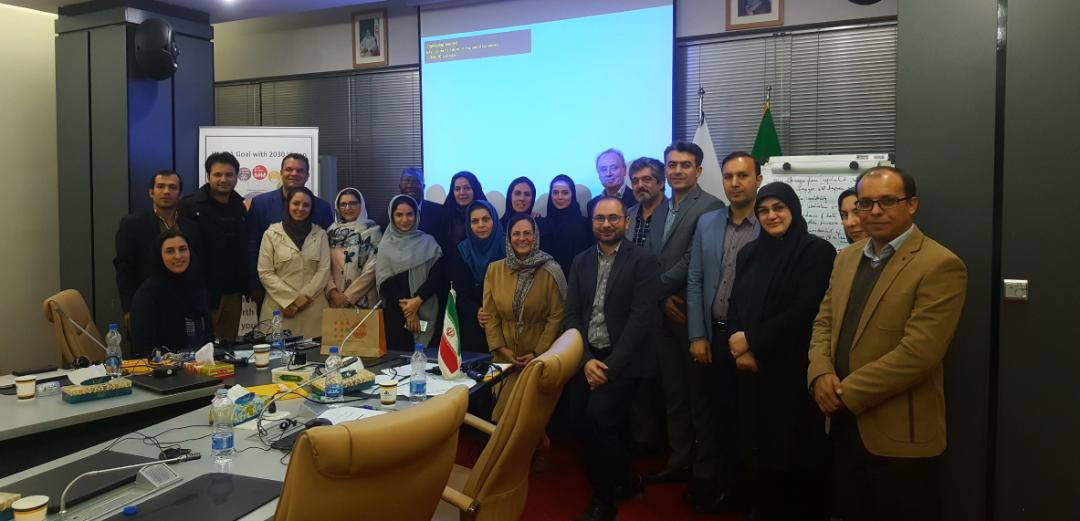In collaboration with the I.R. Iran Ministry of Health and Medical Education (MOHME), from 30 November to 3 December the United Nations Population Fund (UNFPA) country office in I.R. Iran conducted the “OneHealth Tool Training for Economists and Public Health Scientists and Validation Workshop”.
The first day of the workshop started with remarks by Dr. Ali Akbar Haghdoust, Deputy to the Health Minister for Coordination and Planning, and Dr. Leila Joudane, UNFPA Representative in I.R. Iran. Following that, Dr. Nasrin Changizi, Head of the MOHME Maternal Health Department, and Prof. Reza Majdzadeh, Adviser to the MOHME Maternal Health Department and the Head of the DCP3 secretariat, noted the importance of this training. The international expert facilitators, Dr. Anderson Stanciole, Health Economics Advisor from the UNFPA Asia Pacific Regional Office, and Dr. Dele Abegunde, Health Economics Consultant, gave an introduction on the goals of the training.
The main objective of the workshop was to build the capacity of health economists, public health scientists, academics, practitioners, and budget and finance specialists on the application of the One-Health Tool. Participants included professionals from the health and budgeting divisions of the MOHME, provincial governments, the health insurance organization and universities.
The training also provided an opportunity to validate the data that is being used in the ongoing UNFPA-supported initiative to improve the efficiency and resource allocation of maternal health services in the I.R. of Iran. Improved spending and management practices can help ensure the significant maternal health gains achieved in recent years are maintained without additional strains on public finances given the current economic challenges confronting the country. During the workshop, national experts reviewed and validated data that is being used for this initiative.
This active collaboration between UNFPA and the MOHME will enable national professionals to acquire the skills and knowledge in the application of One-Health Tool to inform health policy analyses. This enhanced pool of knowledge and skills within the I. R. Iran will enable national experts to develop similar exercises in different disease areas, support policy level activities with purposeful programming and inform planning processes in the future.


